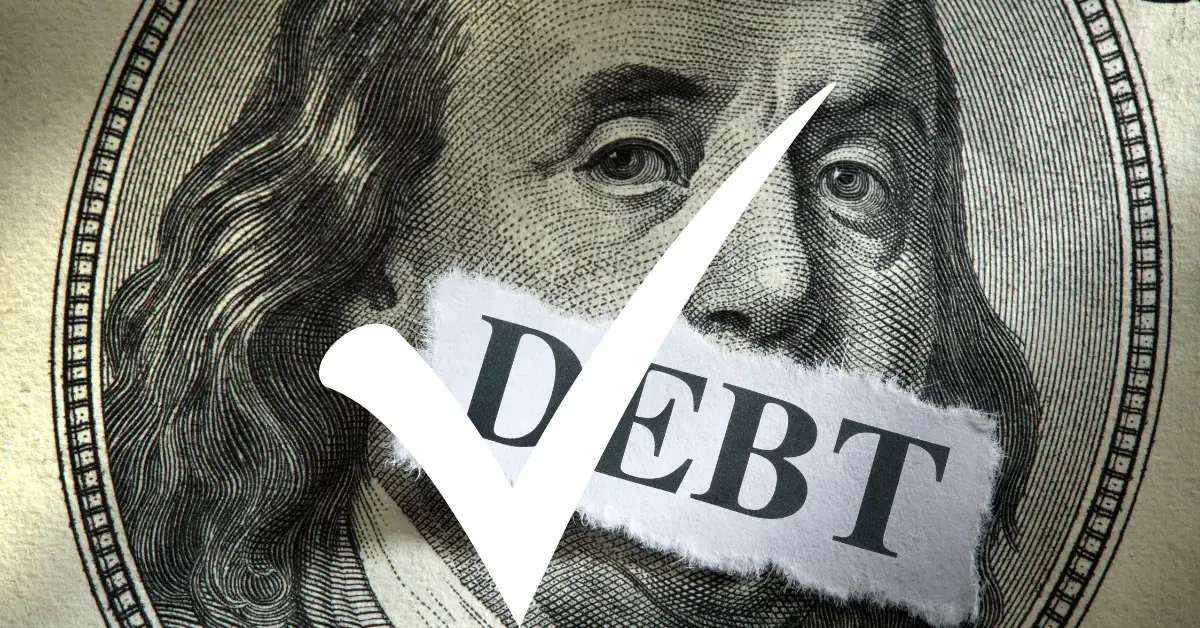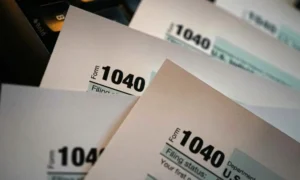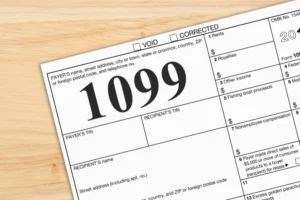If you’ve ever received a CP504B notice and felt like you’ve hit a brick wall, you’re not alone. The moment that letter lands in your mailbox can be daunting, but here’s the thing – it’s far from the end of the road.
So, we’re here to break down that seemingly steep climb into a series of easy-to-tackle steps for effective tax debt resolution.
The IRS sends out these notices when there’s outstanding tax debt they intend to collect on, which means it’s crunch time for taking action. Whether you’ve been through this process before or are new to the game, understanding your next moves is crucial.
Key Takeaways:
- Notice CP504B informs taxpayers of unpaid taxes and potential levies. Take immediate action.
- Review the notice for accuracy, correct errors, and explore resolution options.
- Ignoring CP504B can lead to liens, levies, and asset seizure. Address debt promptly.
- Tax professionals provide valuable assistance in resolving tax debt with the IRS.
- The Taxpayer Bill of Rights outlines fundamental rights when dealing with the IRS.
Understanding Your IRS Notice CP504B
If you’ve received an IRS notice CP504B, don’t panic. This notice is the IRS’s way of letting you know that you have unpaid taxes and they intend to levy your state tax refund or other property if you don’t pay up.
The CP504B, similar to the CP504 Notice, is a serious notice that shouldn’t be ignored. It’s important to read the notice carefully and take action right away to avoid further consequences.
Some frequently asked questions about the CP504B include:
- What is an IRS notice CP504B?
- What should I do if I receive a CP504B?
- Can I set up a payment plan for my tax debt?
- What happens if I ignore the notice?
We’ll answer all these questions and more in this post. By the end, you’ll have a clear understanding of what the CP504B means and what steps to take next.
What to Do If You Receive Notice CP504B
First things first, don’t ignore the notice. The IRS is serious about collecting unpaid taxes and they won’t hesitate to take action if you don’t respond.
Check the CP504B Notice for Accuracy
Review the notice carefully to make sure all the information is correct. Check that the tax years, amounts owed, and your personal information are all accurate. If anything looks off, you’ll need to contact the IRS right away to get it corrected.
Correct Any Errors with the IRS
If you spot an error on your CP504B notice, call the IRS immediately at the number listed on the notice. You’ll need to provide an explanation of what’s wrong and evidence to support your claim, such as your IRS account transcript.
Seek Penalty Abatement
If you’ve racked up penalties on top of your unpaid taxes, you may be able to get them reduced or removed through penalty abatement. Some common reasons for abatement include:
- Reasonable cause (such as serious illness or natural disaster)
- Statutory exceptions
- Administrative waivers
- Correction of IRS error
To request penalty abatement, you’ll need to submit Form 843 to the IRS along with a written explanation and any supporting documentation.
Pay the Balance Due or Seek Tax Relief
Of course, the best way to handle a CP504B notice is to pay your tax debt in full. But if you can’t afford to do that, you have other options.
You may be able to set up a payment plan with the IRS or negotiate an offer in compromise to settle your debt for less than you owe. If you’re experiencing financial hardship, you might also qualify for currently not collectible status.
So, the best move is to act fast and team up with the IRS to hammer out a solution. Ignoring the problem will only make it worse and could lead to aggressive collection actions like levies and liens.
Payment Options for Notice CP504B
So you’ve received a CP504B notice and you’re ready to tackle your tax debt head-on. What are your options for paying the IRS? Let’s break it down.
Setting Up an Installment Agreement
If you can’t afford to pay your full tax bill all at once, a streamlined installment agreement lets you make monthly payments over time. There are a few different types of agreements available:
- Guaranteed installment agreement
- Streamlined installment agreement
- Non-streamlined installment agreement
- Partial payment installment agreement
To request an installment plan, you can apply online, by mail, or over the phone. You’ll need to provide some basic information about your finances and propose a monthly payment amount.
Keep in mind that installment agreements come with setup fees and may also include penalties and interest until your balance is paid in full. But they can be a good option if you need more time to pay.
Exploring an Offer in Compromise
An offer in compromise (OIC) is an agreement between you and the IRS that settles your tax debt for less than the full amount you owe. It’s not an easy process, but it may be an option if you can’t pay your full tax liability or if doing so would create a financial hardship.
To qualify for an OIC, you must meet one of the following criteria:
- There is doubt as to liability (you don’t owe the tax debt).
- There is doubt as to collectibility (you can’t pay the full amount).
- Effective tax administration (paying the debt would create an economic hardship or would be unfair and inequitable).
The IRS will consider your unique set of facts and circumstances, including your income, expenses, asset equity, and ability to pay. You’ll need to submit a detailed proposal using Form 656-B, along with an application fee and initial payment.
Requesting Currently Not Collectible Status
If you’re facing a financial hardship and can’t afford to pay anything toward your tax debt, you may be eligible for currently not collectible (CNC) status. This means the IRS agrees to temporarily delay collection until your financial situation improves.
To request CNC status, you’ll need to provide detailed financial information to the IRS using Form 433-F, Collection Information Statement. If approved, the IRS will put a hold on collection actions like levies and garnishments.
Keep in mind that CNC status is temporary and doesn’t make your tax debt go away. Penalties and interest will continue to accrue, and the IRS may still file a lien against your property. But it can provide some breathing room if you’re struggling to make ends meet.
Consequences of Ignoring Notice CP504B
I get it, dealing with tax debt is no fun. It’s tempting to just ignore that CP504B notice and hope the problem goes away on its own. But trust me, that’s a bad idea. So, if you decide to sit on your hands and do nothing about what you owe, just remember the IRS isn’t shy about using their hefty collection tools.
Tax Liens on Your Property
One of the first things the IRS can do is file a Notice of Federal Tax Lien against your property. This is a public record that alerts creditors that the government has a legal right to your property.
A tax lien can seriously mess with your finances. It attaches to all your assets (think: real estate, cars, bank accounts) and to any future assets you may acquire. It can make it tough to get credit, refinance your mortgage, or even sell your property.
Levies on Your Bank Accounts and Income
If a lien isn’t enough to get your attention, the IRS can start levying (seizing) your assets and income. If you received an IRS Notice CP504, you might already be familiar with how the IRS can take money directly out of your bank account, garnish your wages, and even go after your retirement income.
Levies are a big deal. They can leave you without enough money to cover your basic living expenses. And if you’re hit with a levy, you’ll have to act fast to get it released before it does some serious damage.
Seizure of Your Assets
In extreme cases, the IRS can seize and sell your property to satisfy your tax debt. This includes your house, car, boat, or any other valuable assets you own.
This is a worst-case scenario. But it’s a possibility if you let your tax debt spiral out of control. The best way to prevent things from getting to this point is to communicate with the IRS and work out a payment solution.
The bottom line? Ignoring a CP504B notice is a risky move. The longer you wait to deal with your tax debt, the more penalties and interest you’ll rack up – and the harsher the collection actions may become. Trust me, it’s in your best interest to get moving on this sooner rather than waiting around.
Resolving Your Tax Debt with Professional Help
Dealing with tax debt can be overwhelming, especially if you’re facing a large balance or aggressive collection actions from the IRS. Sometimes, the best way to resolve the situation is to bring in professional help.
Benefits of Hiring a Tax Professional
A qualified tax pro can provide a ton of value when you’re trying to get out of tax debt. They can help you:
- Understand your rights and options as a taxpayer
- Navigate the complicated IRS collection process
- Communicate with the IRS on your behalf
- Negotiate the best possible resolution for your case
- Avoid common pitfalls and mistakes
When you’re dealing with the IRS, there’s no substitute for experience and expertise. A tax attorney, CPA, or enrolled agent can provide the knowledge and advocacy you need to achieve the best outcome.
Navigating the IRS Collection Process
The IRS collection process can be a maze of deadlines, forms, and procedures. A tax pro can guide you through each step of the process, from responding to notices to appealing collection actions.
They can also help you gather the necessary documentation to prove your case, like tax returns, financial statements, and expense records. And if you need to propose a collection alternative like an installment agreement or offer in compromise, they can help you put together a strong proposal package.
Navigating the collection process on your own can be daunting. Working with a pro can give you peace of mind and increase your chances of a favorable resolution.
Protecting Your Rights as a Taxpayer
When you’re facing off against the IRS, it’s important to remember that you have rights. The Taxpayer Bill of Rights outlines the fundamental rights you have when dealing with the IRS, including:
- The right to be informed
- The right to quality service
- The right to pay no more than the correct amount of tax
- The right to challenge the IRS’s position and be heard
- The right to appeal an IRS decision in an independent forum
- The right to finality
- The right to privacy
- The right to confidentiality
- The right to retain representation
- The right to a fair and just tax system
A tax pro can help you assert these rights and ensure that you’re treated fairly by the IRS. They can also protect you from abusive or improper collection actions and help you seek relief if your rights have been violated.
When it comes to resolving tax debt, knowledge is power. Hiring a qualified professional can give you the expertise and advocacy you need to navigate the process with confidence.
Final Thoughts
So there we have it—dealing with a CP504B doesn’t have to feel like navigating through fog without lights. It might seem tough at first glance, but with some know-how and strategic planning, climbing out of this situation becomes entirely possible.
Remembering key points such as checking accuracy and exploring payment options will serve as your compass guiding you towards resolution—and hopefully peace of mind sooner rather than later.
For more information or to work with highly qualified, experienced tax pros, contact Silver Tax Group today!





